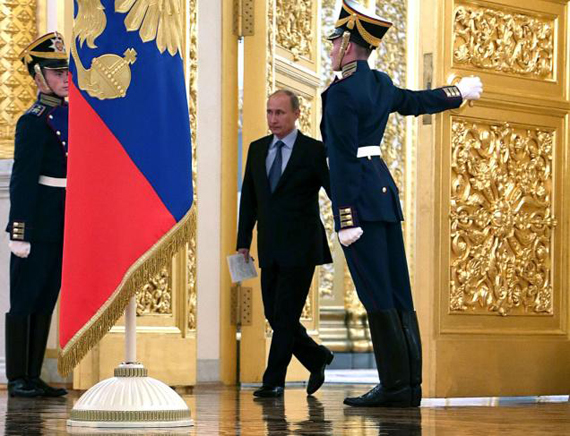
Moscow, Sep 6: Russia will help Syria if it comes under attack, President Vladimir Putin said, stressing that a majority of world leaders attending a G20 summit in St. Petersburg came out against military intervention in the Arab nation.
Asked at a post-summit press conference if Russia will continue to support the Syrian government in the event of a U.S. military strike Mr. Putin said: “Will we help Syria? We will. We are already helping, we’re sending arms [and] cooperating in the economic sphere. I hope we will expand our cooperation in the humanitarian sphere, including relief aid to support civilians who have found themselves in a very dire situation in that country.”
The Russian leader said G20 was divided on the Syrian crisis but a great majority of the world leaders gathered in St. Petersburg clearly opposed unilateral military intervention in Syria.
“I can tell you who favoured military action. It is the U.S., Turkey, Canada, Saudi Arabia and France, while British Prime Minister’s support for the U.S. was not shared by his citizens,” Mr. Putin said. “Now, who were categorically against: Russia, China, India, Indonesia, Argentina, Brazil, South Africa and Italy.”
Mr. Putin said he took note of “unexpectedly” strong stand taken by Prime Minister Manmohan Singh against unilateral military action.
Dr. Singh was quoted as telling the G20 that whatever action is required in Syria should be under the auspices of the U.N. and not outside its framework.
China’s President Xi Jinping also opposed military strike in Syria.
“Political solution is the only right way out for the Syrian crisis, and a military strike cannot solve the problem from the root,” Xinhua news agency quoted Mr. Xi as saying. “We expect certain countries to have a second thought before action.”
Syria was not on official agenda of the G20 summit, but the world leaders spent the “entire” Thursday evening discussing the Syrian crisis over dinner which stretched late into the night, Mr. Putin said.
The Russian President said he had a “substantive, constructive” 20-minute meeting with U.S. President Barack Obama on the sidelines of the G20 summit, but failed to bridge their differences over Syria.
“He doesn't agree with me, I don't agree with him. But we listened to each other,” Mr. Putin said adding that the two leaders agreed to have the Foreign Ministers of the two countries “get in contact and discuss this painful subject.”
Mr. Putin stressed that chemical weapons attacks in Syria were “provocations” staged by rebels in order to get help from their Western backers and that any outside intervention in Syria must be approved by the U.N., otherwise it would be “aggression.”
At a separate press conference in St. Petersburg Mr. Obama defended his intention to attack Syria and claimed growing support from other nations, but did say if any other country apart from France was ready to join in his move.
He said it's “clear that many countries agree with us that international norms must be upheld”.






Comments
Add new comment